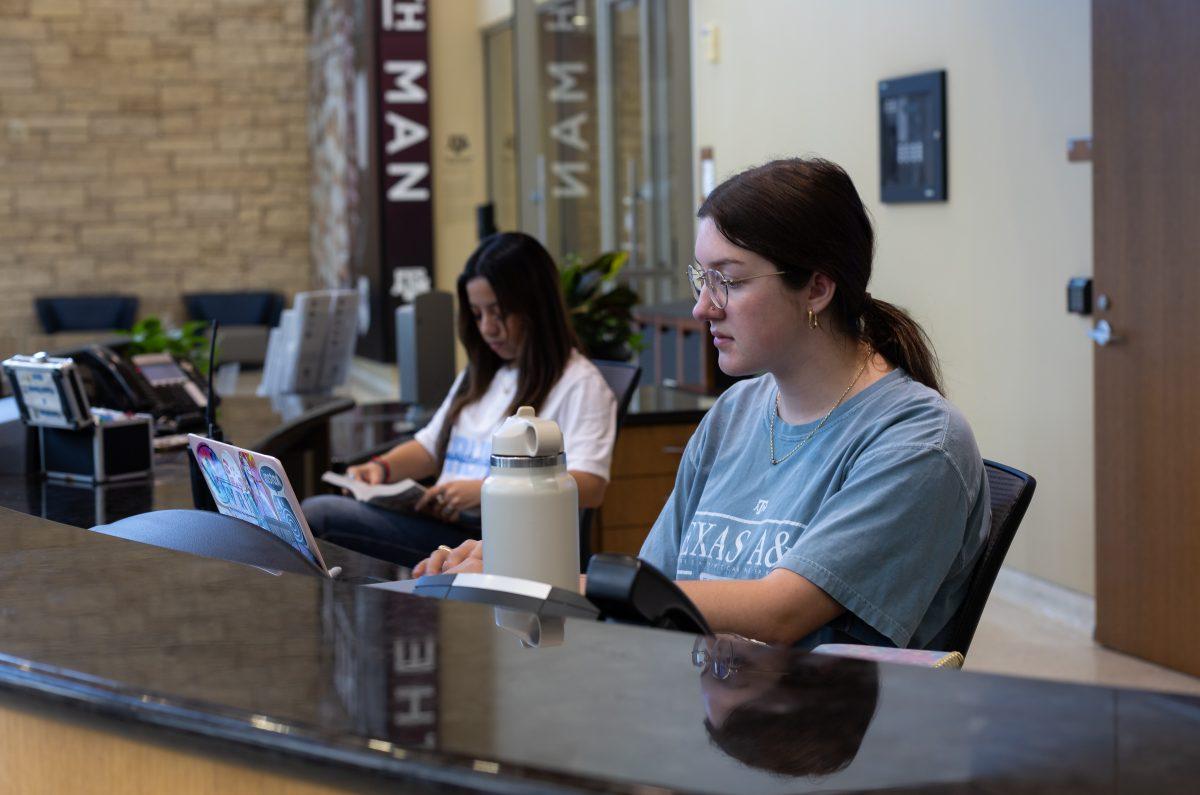Student employment data from 2020-21 provided by Texas A&M’s Student Office Employment showed the median hourly wage was $10.00.
A&M graduate Sam Jefferis, who previously served in A&M’s Student Senate, said while the numbers have improved, student workers should be supported by A&M more.
“In recent days, with Jimbo Fisher’s payout being so large, we really need to make sure our donors and our school are aligned with how they’re supporting the university with money,” Jefferis said. “The money should be directed to the right resources.”
During his time as a student senator, Jefferis said he advocated to make wages fairer for students and suggested A&M create an initiative for students to accumulate less debt. Jefferis said implementing a program to aid students in paying tuition and living expenses is difficult for A&M.
“I spoke to [A&M’s] administration and mentioned Ohio State University’s debt-free plan, and the idea was to use scholarships, work opportunities and grants to empower students not to start off with a lot of debt when they were enrolled in college,” Jefferis said.
However, Jefferis said the plan would require donors and corporations to contribute, lessening donations to athletics, new buildings, and staff and faculty position endowments.
Jefferis said a decrease in funding by state governments is the biggest reason students are needing to earn more money.
“Back in the day, the cost of attendance of a university was significantly lower due to the fact that state governments were providing substantial funds,” Jefferis said. “As time progressed, those budgets and funding has shrunk, causing the increase of costs to affect students. The cost towards students has increased and thus you have to earn more.”
Jefferis said an increase in university enrollment is the reason costs have gone up. With continuing pressure to pursue higher education, colleges are prompted to raise their costs since students are willing to pay higher amounts of money. Students should be making money based on their labor, and the current levels are below market rate, he said.
Agricultural economics lecturer Nicholas Kilmer said the current average hourly wage for students is not enough to cover their expenses.
“From a broad perspective, about $9 an hour at 20 hours per week over nine months would not be enough to cover the cost to live and attend school for the fall and spring semesters,” Kilmer said. “It totals less than $6,500 before taxes, and the estimated cost of attendance for an undergraduate Texas resident is close to $30,000 for that same time period.”
Students must utilize resources from their universities to afford their education and living expenses, Kilmer said.
“I doubt that hardly any universities in Texas would assume that a student could afford to live and attend school full-time based solely on part-time wages,” Kilmer said. “Most students must combine funds from multiple sources such as scholarships, grants, student loans, part-time work, parent contributions, military benefits and so on to do so.”
Political science junior Jameasha Johnson said her scholarship alleviates the burden of paying tuition —but she still struggles to save money. She said despite being a Regents’ Scholar, she still needs to work, and her $10-an-hour job isn’t enough.
“I struggle every two weeks since I get paid biweekly to purchase books, groceries, new clothes, backpacks and class materials, and I work 15 hours a week,” Johnson said. “I struggle to save, as well, since there’s only so much I could put in my savings, and I don’t make as much as I want to make. It’s hard to make ends meet.”
Student employees should get paid more due to their working conditions and reliance on their job to pay expenses, Johnson said.
“A lot of students don’t have scholarships and have to pay out of pocket for tuition, rent, books and have a lot of other stuff to pay for,” Johnson said. “Most of us work in high-stress environments, so we should get paid more than what we currently get paid.”
Allied health junior Jasmine Sanchez said she makes $15 an hour working one job, but that alone is not enough.
“I only work 8 hours a week, so I don’t get paid that much whenever I work.” Sanchez said. “If I worked every day, it wouldn’t be enough for rent but enough for miscellaneous items and groceries. I’m mostly able to afford rent because of support from my parents.”
Even though she is fairly satisfied with her job, students on campus should get paid more, Sanchez said.
“I know a friend who works on campus to pay rent, and her job alone cannot pay for tuition,” Sanchez said. “ … Students on campus should get paid more.”










